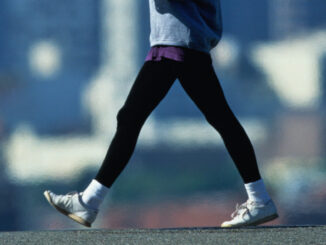
Do you prefer going an early morning run before breakfast to help wake you up and get your daily exercise out of the way? Or hitting the gym right before dinner time? Whatever the case may be, exercising on an empty stomach won’t limit your body’s full potential, and in some case, can help you – depending on the type of training you’re doing.
Before diving into the advantages and disadvantages of working out on an empty stomach, let’s first consider the downside, just to be fair. Working out before eating a full meal comes with risk. For starters, you might start to feel tired and on edge; that’s because your body needs a certain amount of sugar to use as fuel when going through an intense exercise routine. For older individuals (age 55 and older), it’s extremely important to eat something before going on a run or hitting the gym. Even the slightest amount of pre-workout snacks can help you get through your workout session successfully and feel more energized afterwards.
To Eat, or Not to Eat: That is the Question
There are a lot of people who believe that waking up and getting out of bed should be followed by an intense cardio workout before starting the day and eating breakfast. This ideology stems from the fact that glycogen is often consumed by the body in the morning. So if you have an early dinner the night before, for example, your body could essentially burn more fat as it starts to go into overdrive to restore carbohydrates – a preferred energy source that’s not easily available in the body. Although reduced glycogen helps your body burn more fat, if you have a low energy level, it can turn out to do more harm than good. What does that mean? Well, it means if your body’s glycogen is low on energy, your muscles won’t be as defined as you want them to be. Isn’t that point of exercising and staying in shape?
On the other hand, in a recent study published in the American Journal of Physiology, researchers discovered that men who were overweight, in fact, burned more fat when they skipped breakfast. The researchers also found that exercising during the fasting state allowed their bodies to burn even more calories which in the end, had a positive effect on their metabolism. But it’s important to remember that although researchers proved that the body burns more calories when meals are skipped, this study, however, was conducted by a small team of scientist, meaning that more research is still needed to support their claims. Nonetheless, the findings suggest that not eating or fasting before a workout might be the way to go if you want to lose body fat – only if your body can handle it of course.
In other words, the working out-on-an-empty stomach thing can only help if you’re able to complete your workout successfully without feeling the urge to tap out early. So if today is cardio day and you want to take it a step further by doing a hot tub workout session, consider eating a meal to avoid additional strain on your body, and to avoid passing out from exhaustion.
So is it better for me to eat before a workout or after?
Remember, if you’ve eaten a big meal before hitting the gym, a large portion of your blood could be diverted away from the muscles you’re working on that particular day. Why is that? Blood, is our body oxygen system, meaning that eating a big meal and going to the gym shortly after forces the body to make a choice – an important choice for that matter. The body must decide to either supply the muscles with oxygen or supply the entire body with oxygen to help break down food particles. If the body doesn’t have enough time to react, certain symptoms like heartburn, difficulty swallowing, gas, and bloating could soon follow, leading to things like Gastroesophageal Reflux Disease (GERD) and in some cases, esophagus cancer, a cancer that attacks the tube running from your throat to your stomach. This is why working out after a big meal limits the body’s ability to burn fat.
In conclusion, it’s hard to say whether or not working out on an empty stomach will define muscles and improve your body’s image. It simply comes down to personal preference and figuring out what works best for you. If training on an empty stomach makes you feel lifeless and less motivated, then grab a snack before your workout. Likewise, if eating a big meal makes exercising difficult, consider eating smaller portions. As a final point, make sure you stay hydrated before, during, and after your workout. Drinking plenty of water will keep your energy levels high, allowing you to stay motivated throughout your workout.




